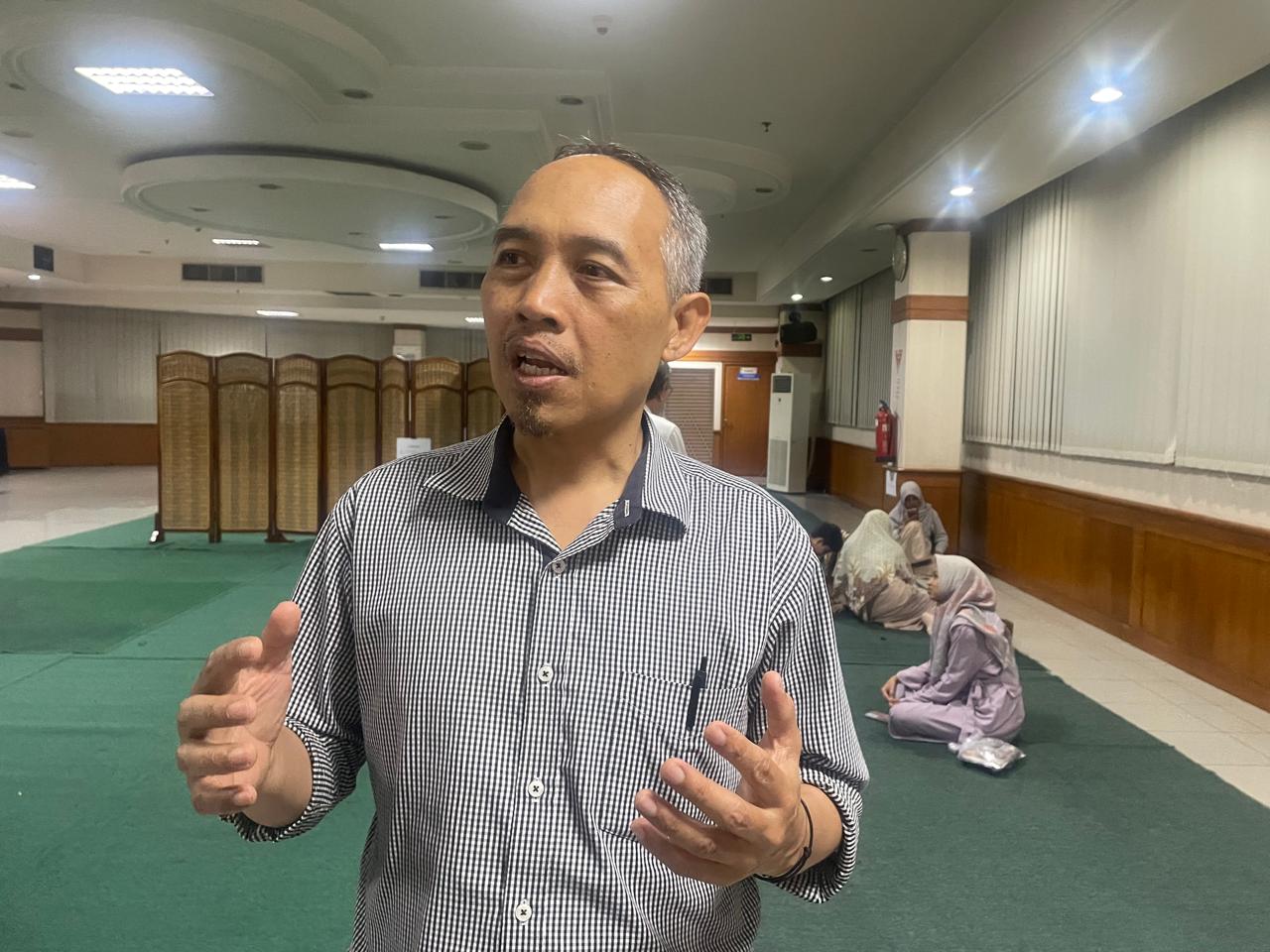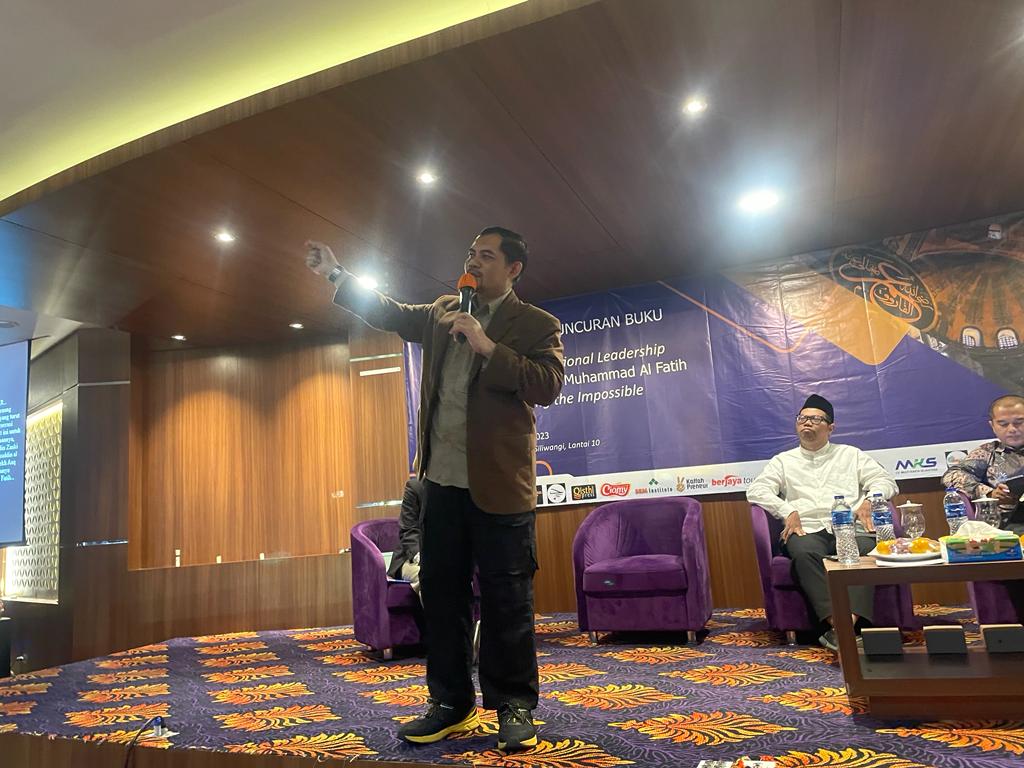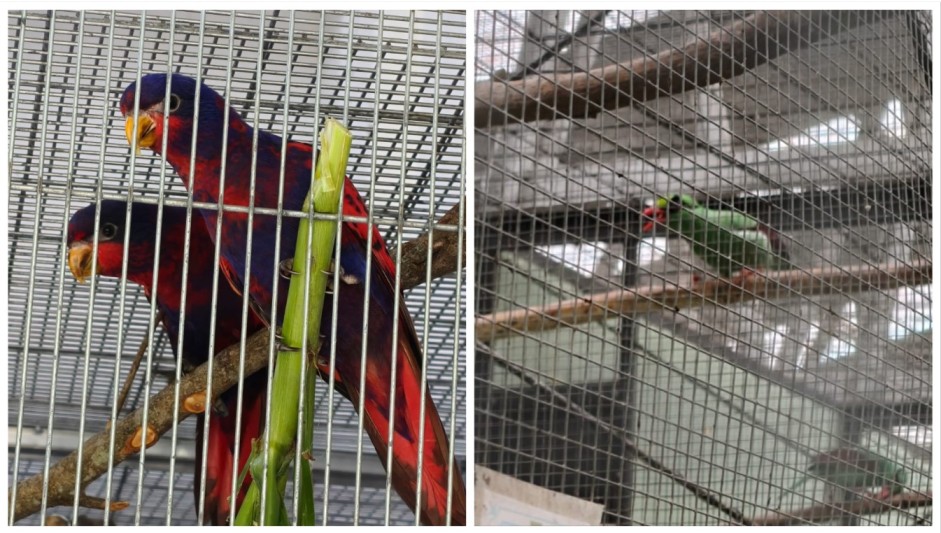Indonesian young Muslims keen to care about environment, food loss and waste in Ramadan short class

Dr. Lalu Solihin, a lecturer majoring in development economics at Nusa Bangsa University, in a special interview with Indonesia Window in Bogor, West Java province, on Saturday (March 15, 2025). (Indonesia Window)
Ramadan Islamic short class program highlights the theme ‘Towards Social Piety: Actions of Young People to Reduce the Impact of Climate Change and Strengthen Food Resilience’.
Bogor, W Java (Indonesia Window) – Around 100 students of different Islamic boarding schools at the levels of junior and senior high schools from different cities in Indonesia as well as universities in the country’s Bogor City, participated in a Ramadan Islamic short class program initiated by the Jabodetabek Journalist Community, in Bogor City, West Java province, Saturday (Mar 15).Jabodetabek stands for Indonesia’s capital Jakarta and its surrounding cities of Bogor, Depok, Tangerang and Bekasi.The program, which has been held for the 14th time this year, carries the theme ‘Towards Social Piety: Actions of Young People to Reduce the Impact of Climate Change and Strengthen Food Resilience’.“This year we are highlighting an environmental topic because this is one of the five issues of the World Bank, namely climate change,” the head of the program’s committee, Dr. Lalu Solihin, said in a special interview with Indonesia Window following the event, here on Saturday (March 15).He pointed out that climate change and environmental problems due to this phenomenon have had an impact on the economic sector throughout the world."Climate change has caused extreme heat, forest fires, as well as crop failures and damage to food crops. Crop failures have the potential to cause food shortages, and if food stocks are reduced or limited, making prices increase. In the worst situation, there would be competition over foods because people do not want to sell their stocks at the global level," said the lecturer majoring in development economics at Nusa Bangsa University in Bogor.Although this is a global problem, he continued, actions to overcome climate change could be carried out in small or nearby environments."Each short class participant gets one fruit plant seedling that they should plant at home. If they do not have land, they can plant it in a public place. We hope that in four years the plant will produce fruit that can be consumed by people.Even if it does not bear fruit, the trees still have the function of absorbing water, thus helping to prevent flooding during the rainy season," Dr. Lalu explained.He emphasized that the action was a small action, but had ‘jariyah’ value, which in Islamic teaching means providing continuous and sustainable benefits."By planting trees, these young people will also have a role in the environment, because the best people are those who are useful to others," Dr. Lalu underscored.
Around 100 students of different Islamic boarding schools at the levels of junior and senior high schools from different cities in Indonesia as well as universities in the country’s Bogor City, participated in a Ramadan Islamic short class program initiated by the Jabodetabek Journalist Community, in Bogor City, West Java province, Saturday (March 15, 2025). (Indonesia Window)
Bagikan
Komentar
Berita Terkait

Conqueror of Constantinople in 1453 legates transformational leadership model
Indonesia
•
12 Nov 2023

One century of monitoring volcanoes
Indonesia
•
25 Jan 2020

COVID-19 - Saudi Arabia to participate in global test for Russian vaccine
Indonesia
•
21 Aug 2020

Indonesia finds old Dutch drainage bunker in Bogor
Indonesia
•
03 Sep 2021
Berita Terbaru

Italian President Mattarella declares Milan-Cortina Winter Olympics open
Indonesia
•
07 Feb 2026

Feature - From Beijing to Milan, Olympics fuel China's winter sports
Indonesia
•
07 Feb 2026

Feature - A story carried forward
Indonesia
•
28 Jan 2026

Prigen Conservation Breeding Ark conserves Indonesia’s endangered endemic songbirds
Indonesia
•
20 Dec 2025
